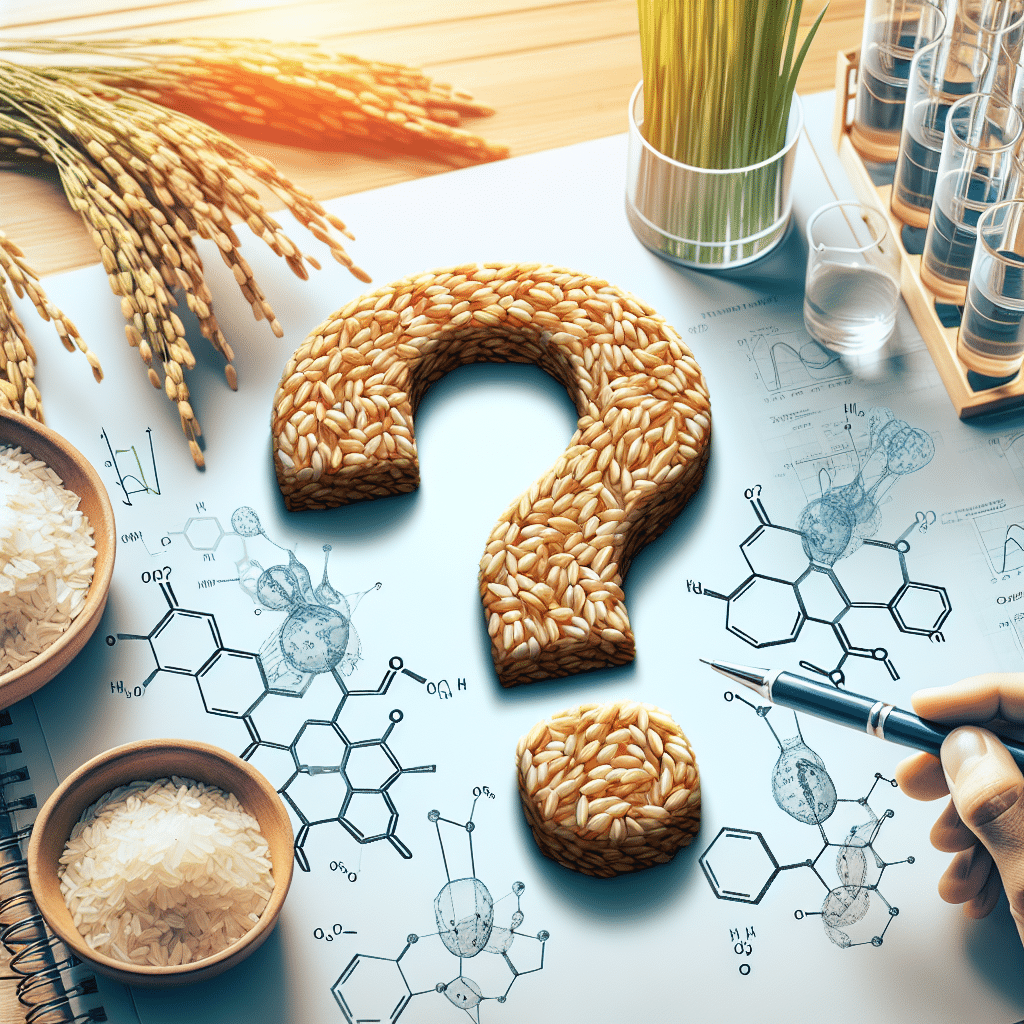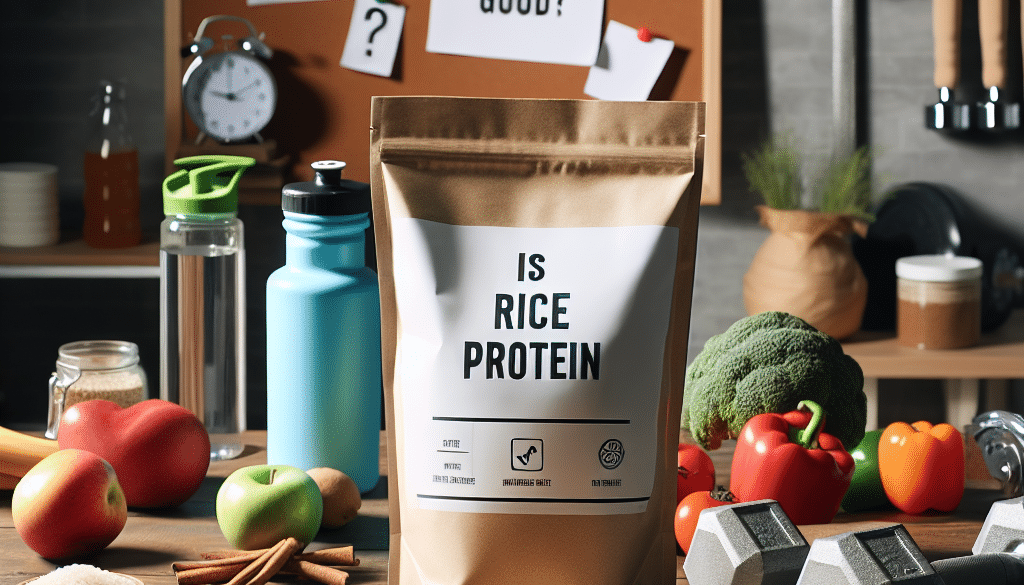Is Rice Protein Any Good?
-
Table of Contents
- Rice Protein: A Comprehensive Analysis of Its Nutritional Value and Benefits
- What is Rice Protein?
- Nutritional Profile of Rice Protein
- Health Benefits of Rice Protein
- 1. Hypoallergenic
- 2. Muscle Growth and Repair
- 3. Weight Management
- 4. Vegan-Friendly
- 5. Easy Digestibility
- Potential Drawbacks of Rice Protein
- 1. Incomplete Amino Acid Profile
- 2. Taste and Texture
- 3. Heavy Metal Contamination
- Comparing Rice Protein to Other Plant-Based Proteins
- Case Studies and Research
- Conclusion: Is Rice Protein Worth Considering?
- Discover ETprotein’s High-Quality Rice Protein Products
Rice Protein: A Comprehensive Analysis of Its Nutritional Value and Benefits

Protein is a crucial macronutrient that plays a vital role in building muscle, repairing tissue, and producing enzymes and hormones. While animal-based proteins have traditionally dominated the market, plant-based proteins are gaining popularity due to dietary preferences, allergies, and environmental concerns. Among these, rice protein has emerged as a promising alternative. This article delves into the nutritional profile, benefits, and potential drawbacks of rice protein to determine its efficacy as a protein source.
What is Rice Protein?
Rice protein is a plant-based protein derived from brown rice. It is obtained by treating brown rice with enzymes that cause the carbohydrates to separate from the proteins. The result is a protein-rich powder that is often used in protein shakes, bars, and supplements. Rice protein is hypoallergenic, making it a suitable option for individuals with allergies to dairy, soy, or gluten.
Nutritional Profile of Rice Protein
Rice protein is not only rich in protein but also contains a good balance of amino acids. However, it is important to note that rice protein is low in lysine, an essential amino acid. To counter this, many people combine rice protein with other plant-based proteins, such as pea protein, which is high in lysine, to achieve a more complete amino acid profile.
- High in protein content
- Contains a balanced set of amino acids, except for lysine
- Low in fat and carbohydrates
- Free from cholesterol and lactose
Health Benefits of Rice Protein
Rice protein offers several health benefits that make it an attractive option for various dietary needs.
1. Hypoallergenic
For those with allergies or sensitivities to dairy, soy, or gluten, rice protein is an excellent alternative. Its hypoallergenic nature reduces the risk of adverse reactions.
2. Muscle Growth and Repair
Like other proteins, rice protein supports muscle growth and repair. Studies have shown that rice protein can be as effective as whey protein in promoting muscle recovery after exercise.
3. Weight Management
Protein is known for its ability to provide satiety and reduce appetite. Incorporating rice protein into a diet can help with weight management by curbing hunger and reducing overall calorie intake.
4. Vegan-Friendly
As a plant-based protein, rice protein is suitable for vegans and vegetarians looking to increase their protein intake without consuming animal products.
5. Easy Digestibility
Rice protein is easily digestible, making it a gentle option for those with sensitive stomachs or digestive issues.
Potential Drawbacks of Rice Protein
While rice protein has many benefits, there are also some potential drawbacks to consider.
1. Incomplete Amino Acid Profile
As mentioned earlier, rice protein is low in lysine. To ensure a complete amino acid profile, it should be combined with other protein sources.
2. Taste and Texture
Some users may find the taste and texture of rice protein less appealing than other protein powders. However, this can often be mitigated by blending it with flavorful ingredients in smoothies or shakes.
3. Heavy Metal Contamination
There have been concerns about heavy metal contamination in rice and rice products. It’s important to choose rice protein from reputable sources that test for heavy metals.
Comparing Rice Protein to Other Plant-Based Proteins
When compared to other plant-based proteins, rice protein holds its own in terms of nutritional value and digestibility. Here’s how it stacks up against some common alternatives:
- Pea Protein: Higher in lysine but may cause bloating in some individuals.
- Soy Protein: Contains all essential amino acids but is a common allergen and has phytoestrogen concerns.
- Hemp Protein: Rich in omega-3 fatty acids but lower in protein content.
Case Studies and Research
Several studies have highlighted the effectiveness of rice protein. For instance, a 2013 study published in the journal Nutrition found that rice protein supplementation post-resistance exercise improved body composition and exercise performance as effectively as whey protein. These findings suggest that rice protein can be a viable alternative to more traditional protein sources.
Conclusion: Is Rice Protein Worth Considering?
In conclusion, rice protein is a good plant-based protein source with several health benefits. It is hypoallergenic, vegan-friendly, and can support muscle growth and weight management. While it has a lower lysine content, this can be easily remedied by combining it with other protein sources. As with any supplement, it’s important to choose high-quality rice protein from reputable manufacturers to avoid contaminants like heavy metals.
Discover ETprotein’s High-Quality Rice Protein Products
If you’re looking for a reliable source of rice protein, ETprotein offers a range of high-quality protein products that cater to various needs. Their organic rice protein is characterized by a neutral taste, non-GMO, and allergen-free attributes, making it an excellent choice for those seeking a pure and effective protein supplement.
ETprotein’s commitment to quality and customer satisfaction makes them a top choice for anyone looking to incorporate rice protein into their diet. Whether you’re a fitness enthusiast, a vegan, or simply looking to improve your health, ETprotein has a product that can meet your needs.
About ETprotein:
ETprotein, a reputable protein and L-(+)-Ergothioneine (EGT) Chinese factory manufacturer and supplier, is renowned for producing, stocking, exporting, and delivering the highest quality organic bulk vegan proteins and L-(+)-Ergothioneine. They include Organic rice protein, clear rice protein, pea protein, clear pea protein, watermelon seed protein, pumpkin seed protein, sunflower seed protein, mung bean protein, peanut protein, and L-(+)-Ergothioneine EGT Pharmaceutical grade, L-(+)-Ergothioneine EGT food grade, L-(+)-Ergothioneine EGT cosmetic grade, L-(+)-Ergothioneine EGT reference grade and L-(+)-Ergothioneine EGT standard. Their offerings, characterized by a neutral taste, non-GMO, allergen-free attributes, with L-(+)-Ergothioneine purity over 98%, 99%, cater to a diverse range of industries. They serve nutraceutical, pharmaceutical, cosmeceutical, veterinary, as well as food and beverage finished product distributors, traders, and manufacturers across Europe, USA, Canada, Australia, Thailand, Japan, Korea, Brazil, and Chile, among others.
ETprotein specialization includes exporting and delivering tailor-made protein powder and finished nutritional supplements. Their extensive product range covers sectors like Food and Beverage, Sports Nutrition, Weight Management, Dietary Supplements, Health and Wellness Products, and Infant Formula, ensuring comprehensive solutions to meet all your protein needs.
As a trusted company by leading global food and beverage brands and Fortune 500 companies, ETprotein reinforces China’s reputation in the global arena. For more information or to sample their products, please contact them and email sales(at)ETprotein.com today.












